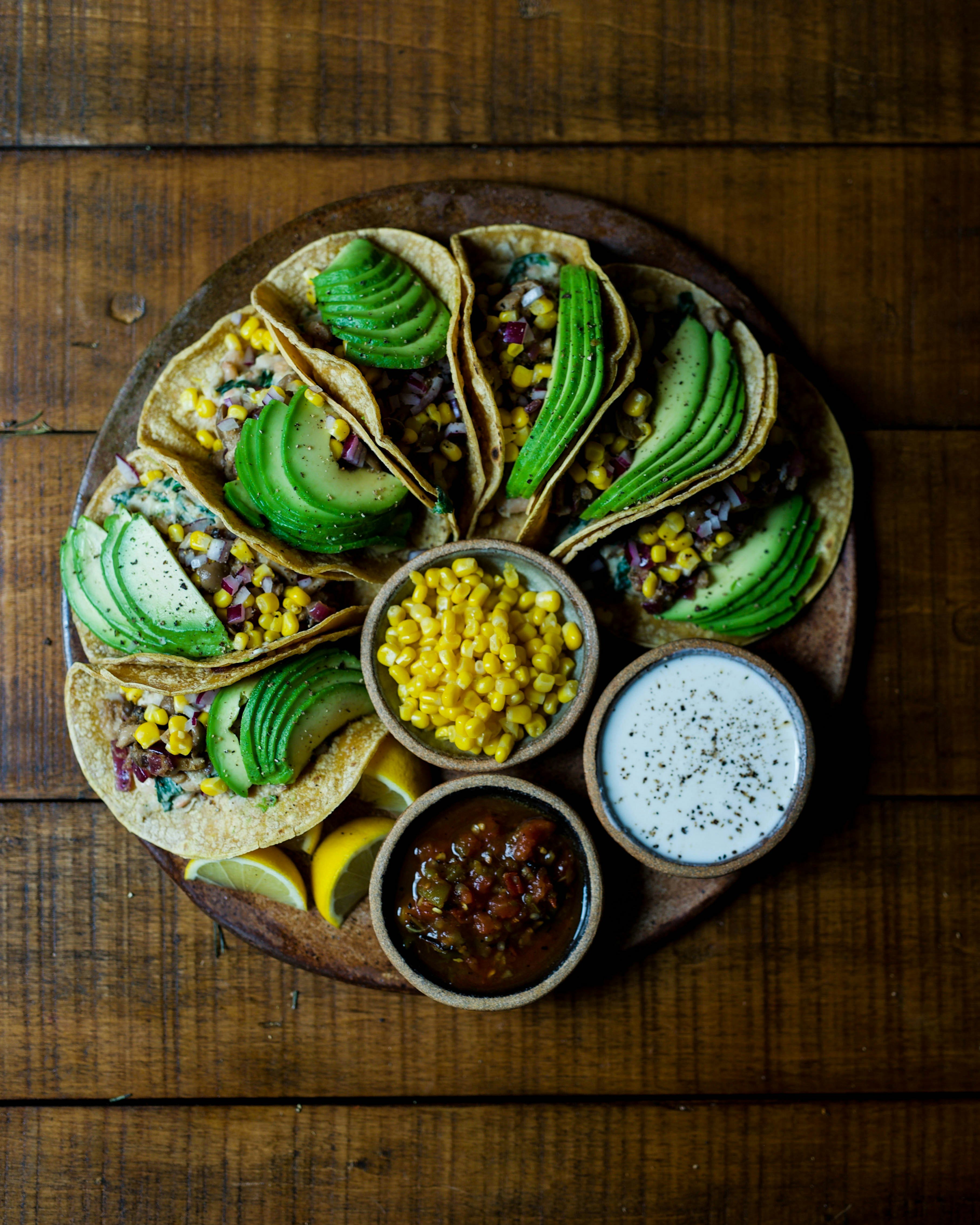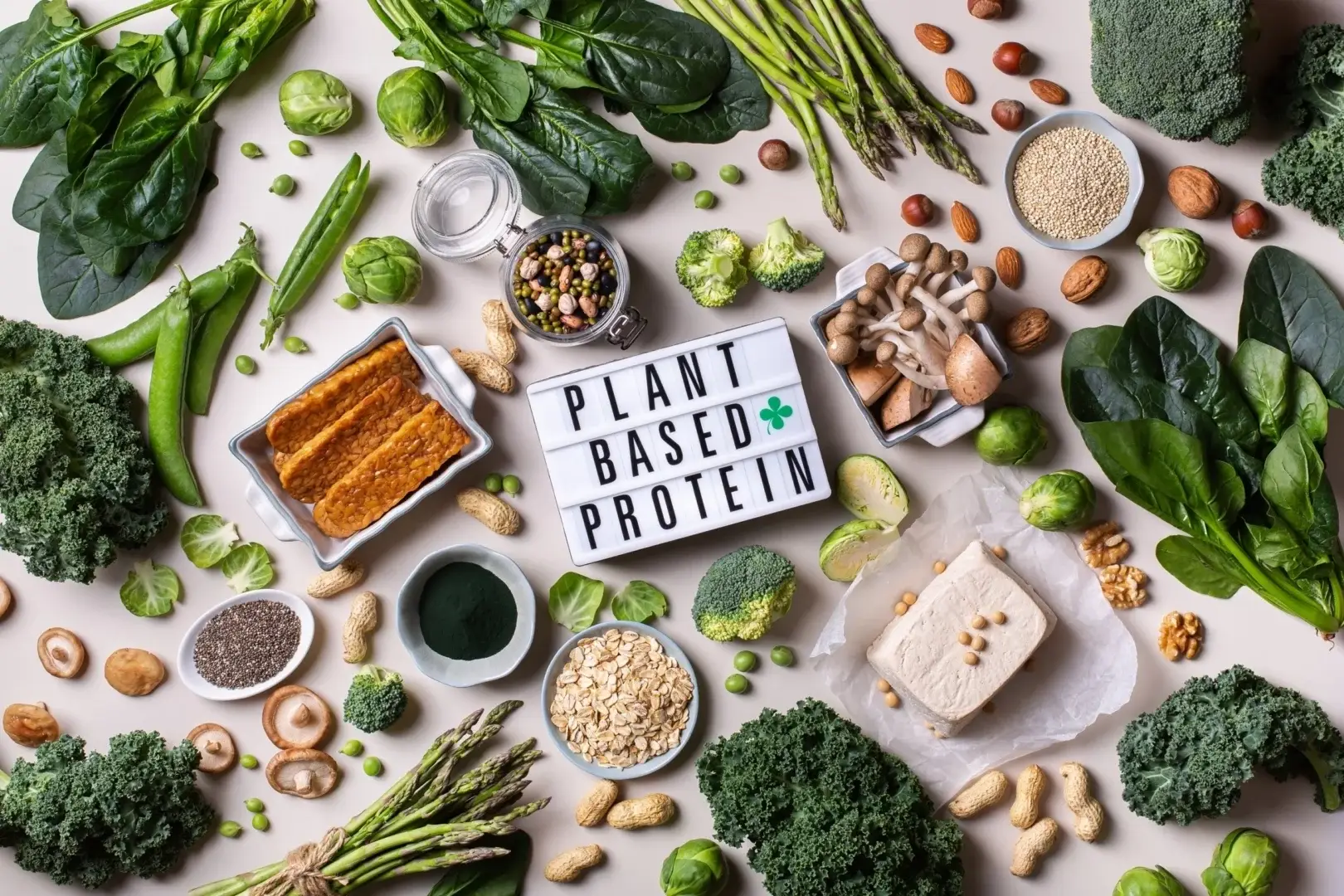Table Of Contents
- Understanding Plant-Based Proteins
- The Basics of Protein and Its Roles
- Myths vs. Reality: Protein Quality and Absorption
- Top Plant-Based Protein Sources for Athletes
- Nutritional Strategies for Incorporating Plant-Based Proteins
- Planning Balanced Meals
- Integrating Proteins with Other Nutrients
- Timing Protein Intake Around Training
- Case Studies and Success Stories
- Interviews with Vegetarian and Vegan Athletes
- Meal Planning and Recipes
- Conclusion
If you're a vegetarian or vegan athlete, a common concern might be ensuring you're getting enough protein in your diet. Protein is essential for muscle repair, growth, and overall health, and there's a misconception that only animal products can provide sufficient amounts. Yet, the realm of plant-based proteins is both vast and versatile, offering numerous healthy and effective alternatives.
Plant-based proteins, sourced from soy, beans, lentils, nuts, seeds, and whole grains, are not just abundant in protein but also brim with essential nutrients like fiber, vitamins, and minerals. Foods such as tofu, tempeh, edamame, chickpeas, and quinoa stand out as high-protein plant-based options that can seamlessly blend into your diet.
Furthermore, many plant-based proteins, including soy and quinoa, are complete proteins, boasting all nine essential amino acids your body requires. With the demand for plant-based proteins on the rise, fueled by health awareness, environmental concerns, and the increasing appeal of vegan and vegetarian diets, it's evident that these alternatives are not just a trend but a sustainable choice. This guide will dive into the plant-based protein landscape, highlighting nutritional benefits, offering tips for dietary integration, and sharing inspiring success stories from athletes who have embraced this change.
Understanding Plant-Based Proteins

The Basics of Protein and Its Roles
Protein is a fundamental component of a healthy diet, playing a critical role in various bodily functions. It is composed of 20 amino acids, which are the building blocks of proteins.
Of these, nine are essential amino acids that the body cannot produce on its own and must be obtained through the diet. These essential amino acids include histidine, isoleucine, leucine, lysine, methionine, phenylalanine, threonine, tryptophan, and valine.
Proteins are essential for muscle repair and growth, hormone production, blood clotting, and the transport of oxygen in the blood. For athletes, adequate protein intake is important for recovery, muscle maintenance, and performance enhancement.
The recommended daily intake of protein varies, but a general guideline is to consume 0.8 grams of protein per kilogram of body weight, with athletes often requiring more due to their increased physical demands.
Myths vs. Reality: Protein Quality and Absorption
One common myth surrounding plant-based proteins is that they are inferior to animal-based proteins in terms of quality and absorption. However, this is not entirely accurate.
While it is true that many plant-based proteins are incomplete, meaning they lack one or more of the essential amino acids, this can be easily mitigated by consuming a variety of plant-based foods throughout the day. Combining different plant-based protein sources, such as grains with legumes or nuts with seeds, ensures that you obtain all the necessary essential amino acids.
Additionally, some plant-based proteins are complete, containing all nine essential amino acids. Examples include soy products, quinoa, amaranth, buckwheat, and spirulina.
These complete proteins offer the same nutritional benefits as their animal-derived counterparts, making them excellent choices for athletes looking to maintain or increase their protein intake.
Top Plant-Based Protein Sources for Athletes
For athletes, selecting high-quality, high-protein plant-based foods is essential for meeting nutritional needs. Here are some of the top plant-based protein sources that are particularly beneficial:
- Soy Products: Tofu, tempeh, and edamame are rich in protein and contain all nine essential amino acids, making them complete proteins. They are versatile and can be incorporated into a variety of dishes.
- Quinoa: This grain is a complete protein and provides about 8 grams of protein per cup. It is also rich in fiber, vitamins, and minerals, making it an excellent addition to any meal.
- Lentils and Beans: These legumes are high in protein and fiber. When combined with grains, they form a complete protein source. They are also rich in iron, zinc, and B vitamins.
- Nuts and Seeds: Almonds, sunflower seeds, chia seeds, and hemp seeds are all high in protein and healthy fats. Chia seeds and hemp seeds are complete proteins and can be easily added to smoothies, salads, or used as toppings.
- Spirulina: This blue-green algae is a complete protein and is rich in antioxidants, B vitamins, and minerals like iron and copper. It can be added to smoothies or used as a supplement.
- Grains and Legume Combinations: Combining grains like rice or wheat with legumes like beans or lentils provides a complete protein profile. This combination is not only protein-rich but also filling and nutritious.
By incorporating these plant-based protein sources into your diet, you can ensure you are meeting your protein needs while also benefiting from the additional nutrients and health benefits these foods provide.
Nutritional Strategies for Incorporating Plant-Based Proteins
Planning Balanced Meals
To ensure you are getting all the necessary nutrients, planning balanced meals is essential when incorporating plant-based proteins into your diet.
A key strategy is to follow the New American Plate guidelines, which recommend filling at least two-thirds of your plate with plant-based foods such as whole grains, vegetables, fruits, and legumes, and the remaining third with either meat or other plant-based proteins.
When planning meals, consider combining different plant-based protein sources to ensure you are getting all the essential amino acids. For example, pairing whole grains with legumes or nuts with seeds can provide a complete protein profile. A classic example is combining pea and rice proteins, which can achieve a high protein digestibility-corrected amino acid score (PDCAAS) when consumed together.
Incorporating a variety of plant-based protein sources into your meals can also be achieved by adding protein-rich ingredients to familiar dishes.
For instance, you can add beans to pasta sauces, soups, and stews, or use nutritional yeast to boost the protein content of your meals. Traditional recipes from cultures like Greece, India, Italy, Mexico, and Asia often feature plant-based proteins and can serve as excellent inspiration.
Integrating Proteins with Other Nutrients
Plant-based proteins are not only rich in protein but also in other essential nutrients like fiber, vitamins, and minerals. Integrating these proteins with other nutrients is vital for overall health and performance.
For example, plant-based proteins are often high in fiber, which supports gut health and satiety. This fiber also helps in maintaining a healthy weight and can reduce the risk of chronic diseases such as heart disease, diabetes, and certain cancers.
In addition to fiber, plant-based proteins are rich in antioxidants and phytochemicals that support short- and long-term health and play a role in chronic disease prevention. These antioxidants can help reduce oxidative stress and inflammation, which are particularly beneficial for athletes who engage in intense physical activity.
When choosing whole plant foods for protein, it's important to consider the overall nutritional profile.
For instance, quinoa is not only a complete protein but also rich in vitamins, minerals, and healthy fats. Similarly, legumes like lentils and beans are high in protein, fiber, and various essential minerals like iron and zinc.
Timing Protein Intake Around Training
For athletes, the timing of protein intake can significantly impact performance and recovery.
It is generally recommended to consume protein within 30-60 minutes after a workout to help with muscle repair and recovery. Plant-based protein sources like pea protein, soy protein, and hemp protein can be particularly effective in this context due to their high bioavailability and ease of absorption.
A pre-workout meal or snack that includes plant-based proteins can also help in maintaining energy levels and supporting muscle function during exercise. For example, a smoothie with soy protein, nuts, and seeds, or a bowl of oatmeal with nut butter and hemp hearts, can provide a sustained energy boost and support muscle health.
Additionally, spreading protein intake throughout the day can help maintain a positive nitrogen balance, which is essential for muscle growth and repair.
This can be achieved by including plant-based protein sources in each meal and snack, ensuring that you are meeting your daily protein needs consistently.
Case Studies and Success Stories

Interviews with Vegetarian and Vegan Athletes
Several renowned athletes have successfully transitioned to plant-based diets, showcasing the viability and benefits of such a lifestyle for athletic performance. One notable example is Venus Williams, the Wimbledon winner, who adopted a vegan diet over a decade ago due to her autoimmune disease, Sjögren's syndrome. This dietary change significantly improved her health, allowing her to continue her successful tennis career despite initial concerns about her condition.
Another inspiring example is Carl Lewis, the nine-time Olympic gold medal winner, who has been on a purely plant-based diet since 1990. Despite the challenges of finding suitable alternatives at the time, Lewis achieved remarkable performances, including setting a new world record in the 100-meter dash in 1991, which he attributes to his plant-based lifestyle.
Fiona Oakes, a long-distance runner, has been a vegan since the 1970s and has maintained a rigorous training regimen and competitive career without compromising her performance. She emphasizes the importance of whole, unprocessed foods in her diet, which provide her with the necessary energy for her demanding training schedule.
Andreas Kraniotakes, an MMA fighter, has also seen significant benefits from his vegan diet, including improved energy levels and faster recovery times. He continues to perform at a high level, dispelling the myth that vegan diets are inadequate for intense physical activities.
Meal Planning and Recipes
For athletes looking to adopt a plant-based diet, meal planning is essential to ensure they meet their nutritional needs.
Here are some insights into the meal plans of successful vegan athletes:
Azad Singh, a personal trainer, focuses on high-carb, high-fiber foods like bean-based pastas, tofu, tempeh, and quinoa. His typical day includes a juice with fermented BCAAs and a light coffee with soy milk in the morning, followed by high-carb meals throughout the day to meet his energy requirements.
Griff Whalen, a former NFL player, emphasizes the importance of clean, unprocessed foods. His breakfast consists of overnight oatmeal with oats, cashew milk, maca powder, hemp seeds, chia seeds, and cocoa powder. Post-workout, he prefers a protein shake with whole foods like spinach, kale, and banana.
JJ Redick, an NBA guard, balances his diet with a mix of plant-based protein items like Beyond Meat, along with whole foods such as overnight oats with almond butter and chia seeds, and a Mexican quinoa bowl with black beans and roasted vegetables. His diet is carefully planned to ensure he meets his macro requirements, with a focus on 55% carbs, 22% fat, and 23% protein.
These examples illustrate that with careful planning and a focus on whole, nutrient-dense foods, athletes can thrive on a plant-based diet, achieving both optimal performance and overall health.
Conclusion
In conclusion, adopting a plant-based protein diet can be a highly effective and healthy choice for vegetarian and vegan athletes. By understanding the basics of plant-based proteins, incorporating them into balanced meals, and timing protein intake around training, athletes can optimize their performance and overall health. Remember to combine various plant-based protein sources to ensure you get all the essential amino acids, and focus on whole, nutrient-dense foods.
With careful planning and the right strategies, a plant-based diet can provide all the necessary nutrients for athletic success. Embrace this lifestyle to enhance your performance, support your health, and contribute to a more sustainable future.

